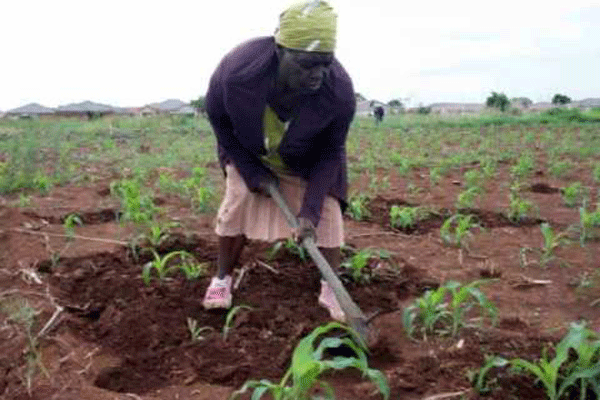
By Mtandazo Nyoni
Zimbabwe must use the agriculture sector and its value chain to leverage on the newly established African Continental Free Trade Area (Afcfta), which has a market of more than 1,2 billion people.
Agriculture is the backbone of the country’s economy, contributing about 17% to the gross domestic product (GDP), according to the Food and Agriculture Organisation.
Fifty-five African Union member states are set to operationalise the continent-wide free trade area in July 2020 and economists said Zimbabwe must start positioning itself to tap into the market.
“The best place for Zimbabwe to start would be agriculture,” prominent economist John Robertson said.
“By regenerating efficient farmers and by restoring their ability to borrow as much as they want from banks, Zimbabwean farmers could not only supply regional countries with maize, it could give manufacturers all the encouragement they need to restart the canning and bottling factories, rebuild the dairy, beef, pork, poultry, deciduous fruit, citrus, paprika, horticulture, cotton and timber industries.
“An increase in export traffic would offer investment opportunities to the railways, the airways and the road transport companies.
“Better farm management would assist in the recovery of wildlife conservation areas and bring back tourism,” he added.
- Chamisa under fire over US$120K donation
- Mavhunga puts DeMbare into Chibuku quarterfinals
- Pension funds bet on Cabora Bassa oilfields
- Councils defy govt fire tender directive
Keep Reading
“Zimbabwe used to do all these things well.
“If the political policies that caused these businesses to go into decline, or even fail, are changed, Zimbabwe could lead the way for the whole of Africa.”
When fully operational, the Afcfta is expected to increase trade within Africa by more than 52% by 2022.
It will create a combined market of more than 1,2 billion people with a combined GDP of more than US$3,4 trillion.
Targeting increased economic integration within the continent, the trade agreement will create a single market for goods and services.
However, opening of markets will mean that companies from big economies such as South Africa, Namibia and Egypt will find it easy to penetrate local markets, including Zimbabwe’s traditional markets in the Sadc and Comesa region.
Observers feel opportunities presented by the free trade area will far outweigh the challenges for Zimbabwe.
ZimTrade said the country’s favourable climatic conditions, which are suitable for production of a variety of crops, presents an opportunity for farmers to specialise on niche products for export.
The export promotion body said horticulture remains one of the highest foreign currency earners for Zimbabwe and is a low hanging fruit for local farmers.
“Value-addition for horticulture produce would also ensure that local enterprises maximise on revenue, as processed products earn more than raw materials,” ZimTrade said.
“Zimbabwe has some of the leading value-added products such as orange crushes and other soft drinks that are in demand across the globe.
“These could be used as key products to support growth of export earnings.”
The country also has a promising textiles and leather industry.
“Zimbabwe has one of the best cotton in the world and used to produce and export fabric across the world in the past,” ZimTrade added.
“Support to the cotton value chain, which promotes value addition of our cotton is one of the interventions that can be done to prepare Zimbabwe to benefit from this continental trade agreement.”
Zimbabwe has eight tanneries that can produce leather products for export.
ZimTrade said local businesses should consider maximising on product efficiencies within the Sadc and Comesa regions.
Robertson said Afcfta would protect itself from inflows of incorrectly priced goods from countries like China.
“Because of its trade war with the United States, China has decided to weaken the yuan to offset the effects of higher duties,” he said.
“The weaker yuan now threatens to make African producers uncompetitive.”
Robertson said Africa should not allow China to destroy its clothing, footwear, electrical appliances and furniture manufacturers.
“With more certainty that a billion African customers will support duty-free imports from other African countries, investors will support the construction of factories to make such things.”











